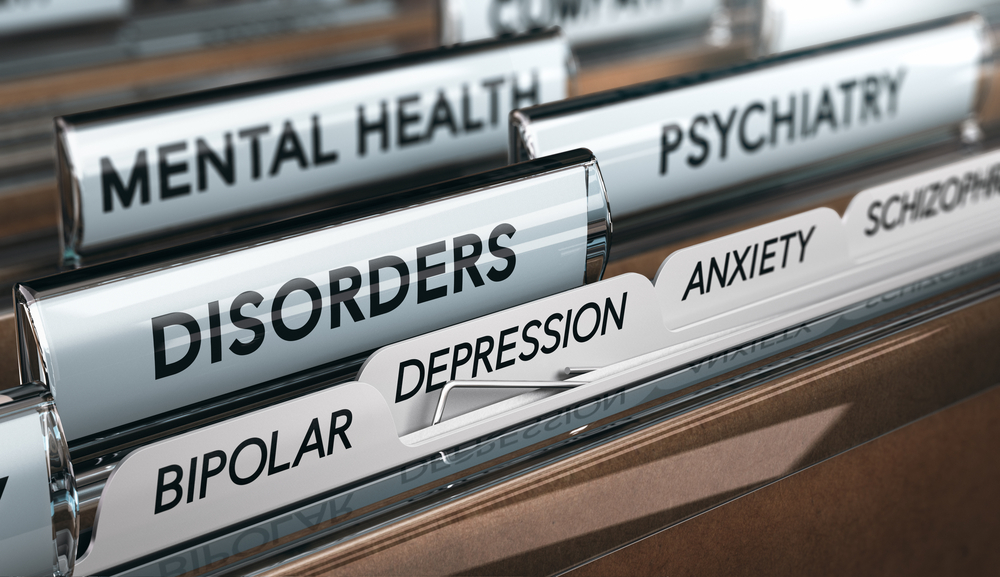In a new article published in Cultural Reflections, Chloe Beale explores the exclusionary language and systems pervasive in modern psychiatry. The author argues that the language we use in psychiatry, especially around suicide, points to a discipline that focuses on risk rather than recovery. She writes:
“Choice of words in clinical work and documentation can betray troubling attitudes, personal values, and fears. Given that psychoanalytic theory remains a core component of psychiatric training, we could do better at recognising our own defenses. We have developed an entire lexicon of weasel words and magical thinking that we pass between generations and disciplines. It would be hard to come up with an exhaustive list of lies we tell ourselves in psychiatric practice.”
 The current work also investigates the systems of exclusions in place within psychiatry. For example, service users may find themselves denied access to services due to postcode, exhibiting too much or too little need, too much risk, etc. To combat these attitudes and values that negatively impact healing and recovery, the author argues that both training and service development should be truly co-produced and more considerate of the human story behind the ailments the discipline aims to treat.
The current work also investigates the systems of exclusions in place within psychiatry. For example, service users may find themselves denied access to services due to postcode, exhibiting too much or too little need, too much risk, etc. To combat these attitudes and values that negatively impact healing and recovery, the author argues that both training and service development should be truly co-produced and more considerate of the human story behind the ailments the discipline aims to treat.
Past research has detailed systematic problems within the discipline of psychiatry. Sociologists have chronicled the failing of American Psychiatry, with researchers pointing to the lower life expectancy and life trajectories of people who experience psychosis as exemplary of a discipline that cannot help the people it claims to. Some voices within the profession have noted that psychiatry is often the cause of, rather than the solution to, mental illness. Other authors have characterized psychiatry as over-medicating, stigmatizing, and causing many of the very problems in claims to resolve.
The problematic use of language by psychiatry is a theme many researchers have explored in the past. According to some authors, the language used in psychiatry can impact a service user’s perceptions, treatment, and informed consent, with negative language causing actual harm through condescension, isolation, and stigmatization. Researchers have even taken issue with the use of terms such as “mental illness” to describe psychological suffering.
One author has gone so far as to call the language psychiatry uses a “human rights violation” due to its tendency to alienate the “mentally ill” from the rest of the population and the consequences faced by service users as a result. Others have written about the tendency for service users to internalize the negative language and therefore become complacent in their own oppression.
Research has shown that stigmatizing language in a person’s medical record negatively impacts patient care. This stigmatizing language can lead to implicit bias, a situation in which the service provider makes judgments and decisions about a service user based on stereotypes rather than the actual lived experience of the service user. Similarly, research has shown that the language used in a patient’s medical record can determine how well a patient is treated and how aggressively their pain is managed for years after the record was created.
The current work examines the language of exclusion so commonly used within psychiatry by looking at the words the discipline uses around suicide risk. According to the author, psychiatry uses deeply flawed suicide checklists and risk assessments to determine who may be at risk of suicide. The discipline’s continued reliance on these dubious instruments points to risk being the chief concern of service providers rather than recovery.
For example, a service provider may label a person as having “no plan or intent” to commit suicide based on flawed measurements. The language of “no plans or intent” excludes this person from receiving psychiatric services intended to assist suicidal people. While the language of “no plans or intent” often does not reflect reality and certainly does not protect a person from suicide, it does allow the service provider to feel better about the unpredictable nature of suicide attempts.
The author also points to the language service providers use in asking possibly suicidal service users to “guarantee their safety.” According to the author, service users should not be asked to guarantee anything to the clinicians. Instead of concentrating on risk, the author argues that clinicians should be “holding hope” and starting therapy from a place of recognizing distress and a desire to help. She writes:
“It is almost as if we take the worst-case scenario and work backward from there, starting at ‘this person might kill themselves, followed by ‘how can I prove it wasn’t my fault?’ Our starting point should be the simple recognition of distress and a desire to help. It is that connection on a human level that so often makes the difference to people in crisis. Nobody ever says they were saved by a thorough risk assessment, and certainly not one treated as a stand-alone list of questions delivered without empathy. One wonders if there is another medical specialty in which there is such dogged devotion to a non-evidence-based practice.”
The current work then examines the systematic exclusion of certain people from psychiatric services for various reasons, including postcode, diagnosis, complexity, comorbidity, too much need, not enough need, risk, lack of motivation, readiness for change, etc. The term used within psychiatry for these exclusions is “gatekeeping.” For the author, the use of this kind of language creates an environment in which psychiatric services become a “fortress” and service users are viewed as “intruders.” The first thought of clinicians in this environment becomes “how can we protect these resources from intruders” rather than “how can I help this person in front of me?”
In order to correct exclusion culture in modern psychiatry and thereby significantly improve the usefulness of these services, the authors suggest that the discipline needs to concentrate on true co-creation of knowledge. Psychiatric training and services should rely both on expert understanding of mental illness and the lived experience of those using psychiatric services. The discipline must also acknowledge that resources are limited in an honest way rather than pretending we are excluding people from services for clinical reasons. The author concludes:
“Decades of damage requires time to repair, not to mention the buy-in of all parties. Training has a role, from the undergraduate level upwards across all professional groups, but organizations must have the guts to implement culture shift rather than a series of slightly altered tick boxes. The more clinicians work side by side with the people who use mental health services (and those who have been excluded from them), the more effective the message. Meaningful training and service development should be truly co-produced.”
****
Beale, C. (2021). Magical thinking and moral injury: Exclusion culture in psychiatry. BJPsych Bulletin, 46(1), 16–19. https://doi.org/10.1192/bjb.2021.86 (Link)















—- According to some authors, the language used in psychiatry can impact … perceptions, treatment, and informed consent
The words we use direct our actions. And inactions. They drive our prejudices. Until we thoroughly examine the words we employ, we repeat acts better overcome.
Mental health has made little to no effort to reform its language. As a result we hobble ourselves with it.
Harold A Maio
Report comment
Everyone is aware of the stigma and discrimination a person with a borderline personality disorder diagnosis faces in health care settings and in society in general.
To be aware of it is one thing, but only those people who have experienced it directly understand what it’s like to be on the receiving end of it. I carried the diagnosis for 15 years before the system spit me out. It was pure hell.
Report comment
Richard et al: Have you considered “Exclusive” rather than “Exclusion” within the practice of medicine? Or the orders by which one begins to sense class distinction, arrogance of power? And if one examines the various disciplines accredited through the various agencies, just who or what gives the accreditation to practice the profession of teaching without engaged learning? If you think about it, we are always learning, even when we are being committed, forced into seculusion, strapped down, and doped up. Though the learning of physical/pharma restraint is a question about the signal/signifier to the brain. And the institution of the practice as well as the facility, the building and organizational management is practicing while ignoring what they do not know or want to know. Further, if you go into the Am. Psych Association Parliamentary Rules, in its wisdom reduced the chance for self-reflection by the legislative body. The ebb and flow in rule making needs self-reflexivity, as we, as individuals, too in my opinion. For in the polarities of the experience of the inner collapse into the midnight hour, the darkness of the soul, in contrast to moving towards the other extreme, the rate of the metabolism and release of energy is not as smooth as one would like. Might even look more like the lines reflective of the stock market, the collective expression seen on paper. But what sets us to wondering and asking how and why consciousness relates to other facets of whole? In the language of education, do you train people or does one does one practice educare? And is the learning occurring in a space that is receptive to innovation?
Report comment
I am not sure about psychiatry being a “culture of exclusion.” They seem to want to include everyone in their (psych) drug-taking, therapy world— no matter sex, gender, race, age, etc. If you visit one of their offices or clinics, they will not discriminate in writing you a prescription for a dangerous psychiatric drug that could damage your brains and or body forever. Thank you.
Report comment
This is quite a labyrinth of let’s not say anything, much…
To begin with, what psychiatry, mostly, does is take whoever wants to play their game, to dowse their mind and turn off any depth to experience and perspective that would take away from a consumer oriented superficiality, a social matrix that rewards pretension and the addictions that are mistaken for fashion and social bonding: and then rewards them with pats on the head, cupcakes in foster care facilities, peer support credentials that put permanent seemingly un-removable masks on their face of smiles and goodwill that anyone else can become part of such a privileged minority and ignoring what the drugs really do and lit up with their disability.
Everyone else, simply endeavoring to be human has to deal with an onslaught and any natural reaction they have can fall under the discriminatory eyes social workers, psychiatrists, social engineers and other pundits of we-will-keep-you-alarmed-about-being-human-if-you-trade-it-for-our-fear-based-machinery have and bond with each other regarding all their paranoia stamped with approval by themselves and the machinery controlling them. Such natural reactions then are termed dangers (see above article referring to whether someone is deemed in danger, whether they really are, and skipping totally what the “medications” would have to do with it, as if funneling them into a system that statistically causes more suicides because of the medications is going to help them just because they have a “diagnosis” or have been identified as “suicidal”), any human natural response from someone with a diagnosis or “concern” becomes alarming symptoms, they can be embellished with a whole hoard of presumptions and lies and whether such is going on is completely overlooked because there’s this “danger” and acting vigilant is more important than knowing whether there is any danger, while adding up perceived dangers becomes more important to finding out whether there is danger or whether seeing what’s going on as danger is more dangerous in the long run then looking for “danger.” And if you become paranoid, and believe their lies, then you get to be the one, even listed above as getting the treatment they need. And if someone doesn’t believe the lies, won’t go along with predatory offering, ends up being met with “we give up you are hopeless,” and finds freedom, and in reality simply being alive and still walking the earth to show there’s a different way, they then are those that “didn’t” receive needed “treatment!?”
And what does this “concern” add up to for “treatment!?”
It really would be nice to read something that’s not going around in circles negating those not interested in the “rewards” of going around in circles as if they can be dismissed from actual regard concerning who truly is helping and who isn’t.
Report comment
“We have developed an entire lexicon of weasel words and magical thinking that we pass between generations and disciplines.” Great description of the DSM “bible,” and the insane belief system of those who bill utilizing it.
“It would be hard to come up with an exhaustive list of lies we tell ourselves in psychiatric practice.” Indeed, I’ve never met more incessant liars, than “mental health” workers.
“One author has gone so far as to call the language psychiatry uses a ‘human rights violation’ due to its tendency to alienate the ‘mentally ill’ from the rest of the population and the consequences faced by service users as a result.”
Well, this most certainly is the goal of the child abuse and rape covering up psychological profession.
https://www.indybay.org/newsitems/2019/01/23/18820633.php?fbclid=IwAR2-cgZPcEvbz7yFqMuUwneIuaqGleGiOzackY4N2sPeVXolwmEga5iKxdo
https://www.madinamerica.com/2016/04/heal-for-life/
I know my child abuse covering up psychologist literally told me to “quit all your activities and concentrate on the meds.” Good thing I ignored that insanely stupid advise.
But what’s sad is that, since my former religion has “partnered” with the child abuse covering up psychological and psychiatric industries, my entire family had to leave that systemic child abuse covering up religion – which is a form of alienating people. Not that I want to be a member of a child abusing and child abuse covering up religion anyway, but that religion did defraud my family out of millions, since they pretend to be a Christian religion.
https://books.google.com/books?id=xI01AlxH1uAC&printsec=frontcover&source=gbs_ge_summary_r&cad=0#v=onepage&q&f=false
“Sociologists have chronicled the failing of American Psychiatry, with researchers pointing to the lower life expectancy and life trajectories of people who experience psychosis as exemplary of a discipline that cannot help the people it claims to.”
It’s worse than that, given the fact that both the antidepressants and antipsychotics can create “psychosis,” via anticholinergic toxidrome.
https://en.wikipedia.org/wiki/Toxidrome
“Research has shown that stigmatizing language in a person’s medical record negatively impacts patient care.”
Very true, and the mere mention of a DSM stigmatization in one’s medical records precludes people from even being able to purchase health insurance.
“This stigmatizing language can lead to implicit bias, a situation in which the service provider makes judgments and decisions about a service user based on stereotypes rather than the actual lived experience of the service user.”
Indeed, in the end, my psychiatrist – when confronted with all the misinformation in his medical records, gotten largely from the child abuse covering up psychologist and her pedophile friends, instead of from me – literally declared my entire life to be a “credible fictional story.”
“The language of ‘no plans or intent’ excludes this person from receiving psychiatric services intended to assist suicidal people.”
I didn’t find that confessing to not being suicidal prevented “mental health” workers from coercing and forcing neurotoxins on me, unfortunately.
“Decades of damage requires time to repair, not to mention the buy-in of all parties.”
The problem is the child abuse covering up “mental health” industry and religions don’t want to end their multibillion dollar, primarily child abuse covering up, “partnership.”
Report comment